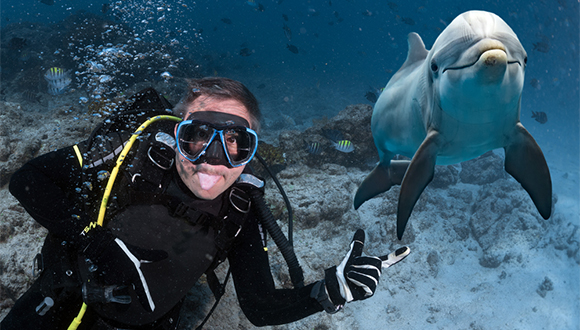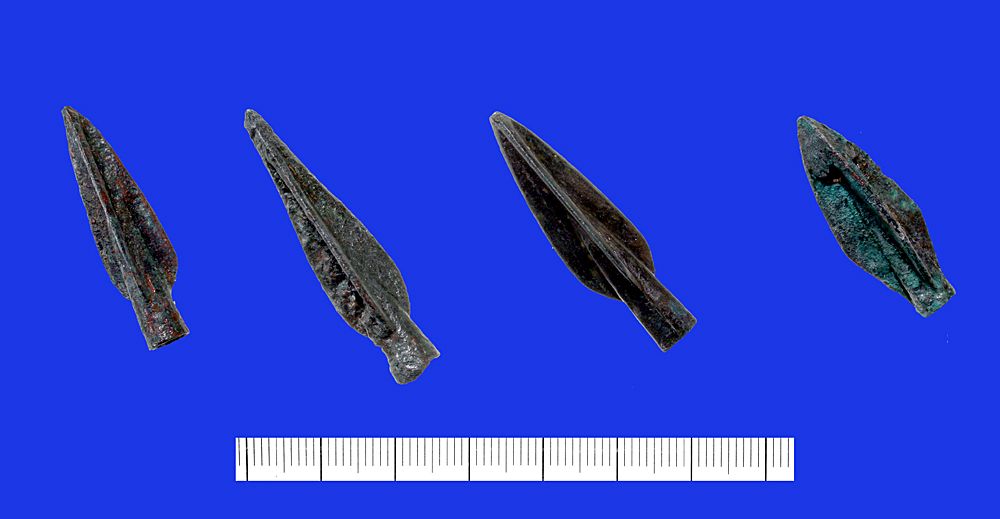Global first at TAU: MRI scan of the brains of 130 species of mammals, including humans, indicates equal connectivity in all of them
The research reveales a universal Law: Conservation of Brain Connectivity
 Intelligent mammals
Intelligent mammals
 Intelligent mammals
Intelligent mammals
The latest issue of “Kesher”, an academic journal published by the Shalom Rosenfeld Institute for Research of Jewish Media and Communication at Tel Aviv University, opens with a unique paper, which is unprecedented in an academic journal.
In his first article in Hebrew, Prof. Mohammed Ibrahim Alghbban, head of NELC and Hebrew Studies at the Department of Modern Languages and Translation, at King Saud University in Riyadh, claims that the prophet Muhammad had good relations with Jews and only clashed with them on political grounds, not on religious ones. The article is called “Contribution to Prophet Muhammad’s Image Improvement in the Eyes of the Israeli Public: Muhammad’s Alliances and Mail Exchanges with Jews from the Arabian Peninsula.” The paper was published among increasing calls in Saudi Arabia and the Arab League to use inter-religious understanding for cooperation with Jews and Israel to achieve peace.
The editor of the academic journal “Kesher”, Prof. Gideon Kouts, met Prof. Alghbban at academic Hebrew Studies conferences as well as on his visit to Riyadh in 2015.
According to Prof. Alghbban, he decided to write the article in Hebrew in order to improve the image of the Prophet Muhammad in the eyes of the Israeli public. “Erroneous assumptions about the origins of Islam, proposed by Oriental Studies researchers in the previous century – some of which were written in Hebrew – led to a distorted understanding of manuscripts, wrong methodology, and negative influences on Hebrew speaking Middle Eastern Studies researchers,” writes Prof. Alghbban in the introduction to his article. “Accusing Islam and the Prophet Muhammad of hate speech and racism against Jewish tribes in Hejaz is erroneous. Muhammad treated equally all social groups in Al Madinah and in other places under his control, regardless of race and religion. The misrepresentations in the research are due to the fact that his letters were never translated into Hebrew,” to right this wrong Prof. Alghbban translated them in his article.
King Saud University offers an undergraduate Hebrew Studies program. Prof. Alghbban, head of NELC and Hebrew Studies at the university, incorporates contemporary Israeli literature in the curriculum. The program is taught only to male students, and in its course program one can find works by Israeli writers such as Yosef Haim Brenner, Shmuel Yosef Agnon, and Etgar Keret. Prof. Alghbban says that the Jewish public’s misunderstanding of Prophet Muhammad’s thoughts is rooted in faulty or biased translations into Hebrew, or even lack thereof, of Prophet Muhammad’s letters to Jewish tribes from the Arabian Peninsula and the written alliances he had with them.
Prof. Raanan Rein, head of Shalom Rosenfeld Institute, stresses that this article is mainly important for the unprecedented choice of a Saudi researcher to publish his article in an Israeli academic journal, in order to bring the two nations closer. “I hope that this academic cooperation is another step towards economic and political cooperation.
An international research team, headed by Dr. Tali Ilovitsh from the Biomedical Engineering Department at Tel Aviv University, developed a noninvasive technology platform for gene delivery into cancer cells (breast cancer). The technique combines ultrasound together with tumor-targeted microbubbles. Once the ultrasound is activated, the microbubbles explode like smart and targeted warheads, creating holes in cancer cells’ membranes, and enabling the gene delivery. The two-year research was recently published in the prestigious journal Proceedings of the National Academy of Sciences (PNAS).
Dr. Ilovitsh developed this breakthrough technology during her post doctorate research at the lab of Prof. Katherine Ferrara at Stanford University. The technique utilizes low frequency ultrasound (250 kHz) to detonate microscopic tumor-targeted bubbles. In vivo, cell destruction reached 80% of tumor cells.
Dr. Ilovitsh explains: “Microbubbles are microscopic bubbles filled with gas, with a diameter as small as one tenth of a blood vessel. At certain frequencies and pressures, sound waves cause the microbubbles to act like balloons: they expand and contract periodically. This process increases the transfer of substances from the blood vessels into the surrounding tissue. We discovered that using lower frequencies than those applied previously, microbubbles can significantly expand, until they explode violently. We realized that this discovery could be used as a platform for cancer treatment and started to inject microbubbles into tumors directly.”
Dr. Ilovitsh and the rest of the team used tumor-targeted microbubbles, that were attached to tumor cells’ membranes at the moment of the explosion, and injected them directly into tumors in a mouse model. “About 80% of tumor cells were destroyed in the explosion, which was positive on its own,” says Dr. Ilovitsh. “The targeted treatment, which is safe and cost effective, was able to destroy most of the tumor. However, it is not enough. In order to prevent the remaining cancer cells to spread, we needed to destroy all of the tumor cells. That is why we injected an immunotherapy gene alongside the microbubbles, which acts as a Trojan horse, and signaled the immune system to attack the cancer cell.”
On its own, the gene cannot enter into the cancer cells. However, this gene aimed to enhance the immune system was co-injected together with the microbubbles. Membrane pores were formed in the remaining 20% of the cancer cells that survived the initial explosion, allowing the entry of the gene into the cells. This triggered an immune response that destroyed the cancer cell.
“The majority of cancer cells were destroyed by the explosion, and the remaining cells consumed the immunotherapy gene through the holes that were created in their membranes. The gene caused the cells to produce a substance that triggered the immune system to attack the cancer cell. In fact, our mice had tumors on both sides of their bodies. Despite the fact that we conducted the treatment only on one side, the immune system attacked the distant side as well.”
Dr. Ilovitsh says that in the future she intends to attempt using this technology as a noninvasive treatment for brain related diseases such as brain tumors and other neurodegenerative conditions such as Alzheimer’s and Parkinson’s disease. “The Blood-Brain barrier does not allow for medications to penetrate through, but microbubbles can temporarily open the barrier, enabling the arrival of the treatment to the target area without the need for an invasive surgical intervention.”
Photo: Dr. Tali Ilovitsh
Researches from Tel Aviv University proposed a novel model that ties arrowheads dated to the end of the First Temple and the beginning of the Second Temple period, with key historical events. They also managed to define different arrowhead types used by armies of ancient eastern empires. Many of the arrowheads, examined by the researchers, were found in destruction layers from Babylonian and Assyrian assaults on cities in the land of Israel, while others were found in camps in which those armies stayed. “Arrows were a key component in military tactics of the ancient world, and the importance of this weapon is mainly due to its ability to strike the enemy from afar.” Explains Dr. Guy Stiebel. “The use of arrows for hunting is already known from the prehistoric era, but developments in military forces during the Bronze era increased the use of bows and arrows.”
The following researchers took part in this study: Prof. Oded Lipschits and Dr. Guy Stiebel from the Department of Archaeology and Ancient Near East Studies, together with the research student Sean Dugaw, who wrote his M.A. thesis on the subject. The research was published in IEJ (Israel Exploration Journal).
In this study, the researchers show a model that accurately defines the development of arrowhead types starting from 7th century BCE. Prof. Lipschits explains, “Creating a new typology and marking the evolutionary process of arrowhead types and their chronological point of reference, gives researchers a new dating tool, which allows connecting the layers and sites in which evidence of battle activities of the Empires’ Armies, inside and outside the region of Israel, were found.”
The researchers explain that the various arrowheads discussed in the paper were developed and employed starting from 7th century BCE. Those arrowheads of the three bladed variety had an improved aerodynamic structure which steadied their flight and inflicted more serious wounds than the two bladed arrowheads which preceded them. The functional development of the arrowheads teaches us about combat tactics and the specialty of the archers in the East. Archers in these regions were known for their professionalism and the complex powerful bows that they used, as we see some arrowheads which were designed to penetrate armor (more common in the eastern Mediterranean) while others were made for accurate shooting from a distance.

The earliest known trilobate socketed copper-alloy arrowhead had two blades. Such arrowheads are often referred to by scholars as “Scytho-Iranian arrowheads”. They first appear in Israel during the mid-7th Century BCE at sites associated the Assyrian military occupation. In the study, the researchers suggest tying this appearance with mercenaries serving in the Assyrian army or exiles brought to the area from north of the Assyrian Empire. This arrowhead type does not appear in the Levant after the Assyrian Empire retreat.
The study identified a three bladed socket arrowhead variant associated with Babylonian activity in the region, especially during the military campaigns of Nebuchadnezzar II. This arrowhead type was initially used by the Scythians and Medes at the dawn of the Babylonian empire. It has been found at sites destroyed by Babylonians and Medes in Assyria and Syria. While it may have been used by Scythian mercenaries in Babylonian service, it was eventually adopted by the Babylonians themselves and was used prominently during the Babylonian military campaign against the Kingdom Judah which resulted in the destruction along with its main cities, most importantly – Jerusalem. It is possible that the development and intensive use of this arrowhead helped the Babylonians conquer their enemies. Such arrowheads are found in the administrative citadel in Ramat Rachel, and serve as a clear evidence of Babylonian presence in the area.
Additional arrowhead types were identified that dated to the Persian and Hellenistic eras, some of which were also found in capital cities of the Persian Empire and at the major battle sites of the Greco-Persian wars. They were used throughout the Hellenistic periodSome were even used by Jewish rebels during the second revolt. Although most of the arrowheads used by the Roman archers during the early Roman period were iron and were attached with a tang rather than a socket, they retained the three bladed design of the earlier periods.
This research fits well into the new program at the Departments of Archaeology and Jewish History. This program puts emphasis on the combined research and teaching M.A.: “Many Faces of War” – the History and Archeology of War in Israel, which is made for studying and examining the phenomenon of war, which is always both current and historic.